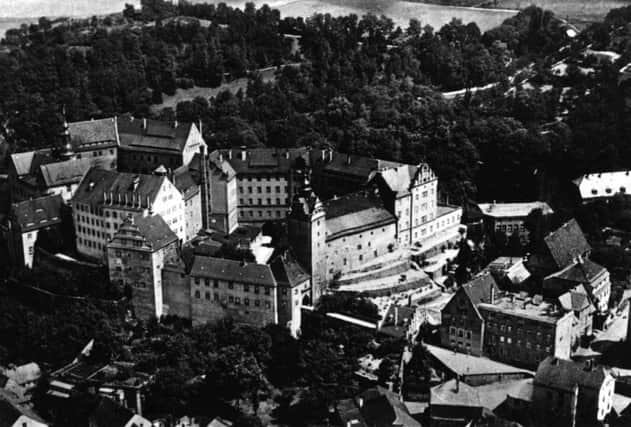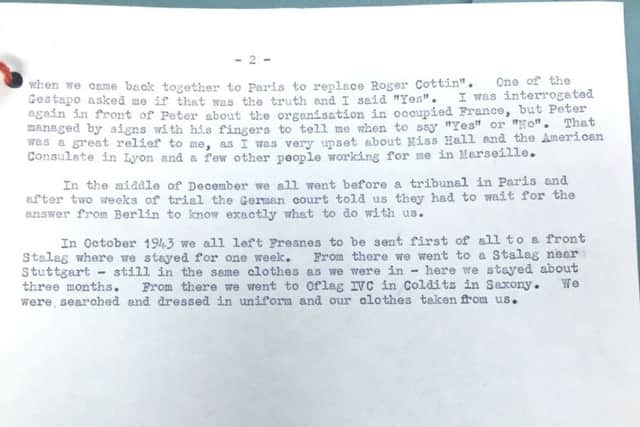Archives tell how British red tape finally beat wartime heroes


Jack Thorez Fincken-McKay was 31 when he was called up to serve as an agent with the Special Operations Executive in Paris, gathering intelligence that might help the allied forces.
But he was arrested by the Gestapo and spent the rest of the war as a PoW, a harrowing and humiliating experience that cast a shadow over his later life.
Advertisement
Hide AdAdvertisement
Hide AdYet two decades after his release, when he applied for his share of the £1m restitution made available by West Germany for victims of the Nazis, it counted for little.


He did not qualify, the Foreign Office told him, because he had been detained in the wrong kind of institution. Colditz, they said, was not a Nazi concentration camp or “comparable institution”.
His case is among dozens to emerge today with the release of documents by the National Archives at Kew. Like that of Mr Fincken-McKay, they are stories of bravery and brutality that often fell on the deaf ears of the Foreign Office clerks.
Heroes of the Great Escape were among those who did receive remuneration, with payouts of £2,293 offered to the families of four men who fled the Stalag Luft III PoW camp in 1944, only to be recaptured and executed by the Gestapo.
Advertisement
Hide AdAdvertisement
Hide AdBut it took a public outcry and a 1968 parliamentary inquiry before PoW survivors could be compensated, and only then from a separate pot of money.


Mr Fincken-McKay’s story is the stuff of wartime action comics. Transferred from the Royal Fusiliers to the War Office to perform “special duties”, he was arrested, along with the head of Special Operations, Pierre “Peter” de Vomecourt, when the Nazis stormed the Paris cafe at which they were meeting.
A strip search by his captors revealed nearly a million francs and a slew of carefully concealed false identity cards. But today’s documents disclose that Mr Fincken-McKay had attempted to “play the fool” by pretending to be nothing more than a black marketeer.
“They took Peter and I in a car to a prison called Fresnes near Paris,” he said, in his application for compensation. “There I was searched again, handcuffed and taken to a cell. They left me three days without food, except a sort of black water in the morning.
Advertisement
Hide AdAdvertisement
Hide Ad“They started to beat me until I collapsed when unconscious. When I recovered I was asked the same question, but I kept to my original story. I returned again to have my photograph, fingerprints, etc, taken.”
He added: “The results from the treatment I received during the two years spent in solitary confinement was that I was reduced to a living skeleton with partial loss of eyesight and memory. For many years after my release from Colditz I was unable to rehabilitate myself and keep any position in civil life.
“I also lost everything I had during the blitz on London and did not receive any compensation. And to my great regret, the little I did accumulate and treasure while I was in Colditz was later confiscated by the Russian Army.”
Lauren Willmott, records specialist at the National Archives, acknowledged that the apportionment of the cash from the old Federal Republic of Germany had been a “bureaucratic process”.
Advertisement
Hide AdAdvertisement
Hide AdBut she said the British government faced an impossible task, because of strict rules on seeing documentation that proved time had been spent in a concentration camp.
She said: “It was tricky - it was 20 years after the event. A lot of people held in the camps had died in the camps or died in the years since the compensation scheme came into effect.
“If they didn’t meet that criteria, they had to decide, ‘If we reject this person, we have to reject others as well’.”